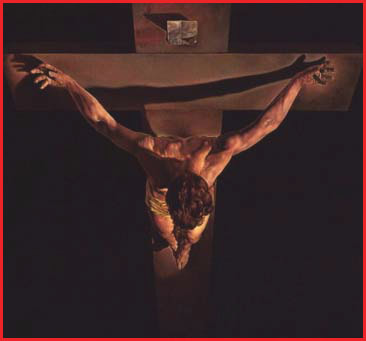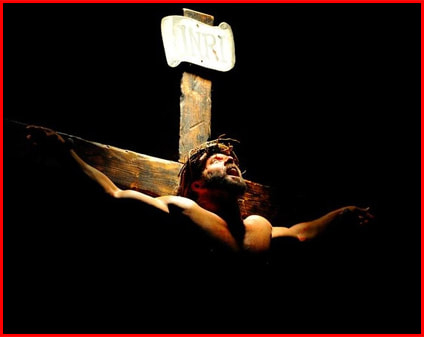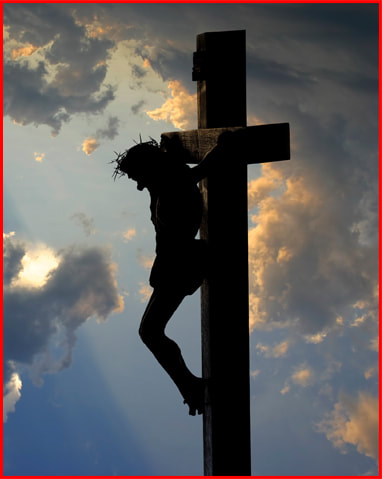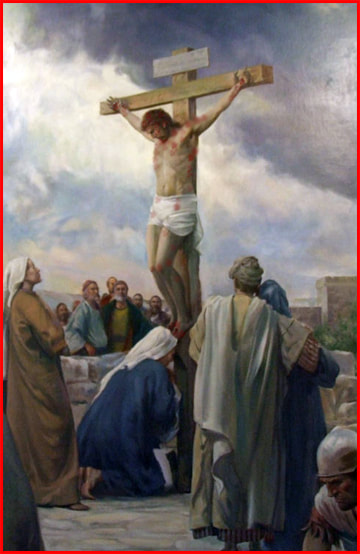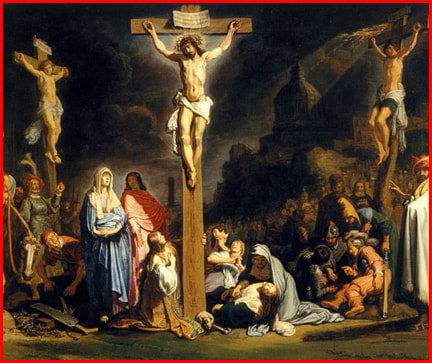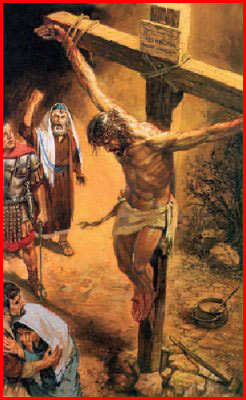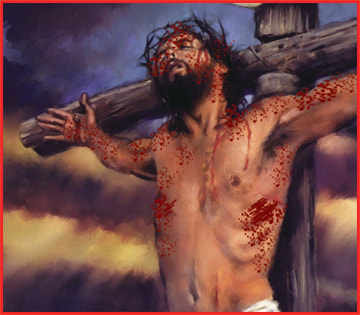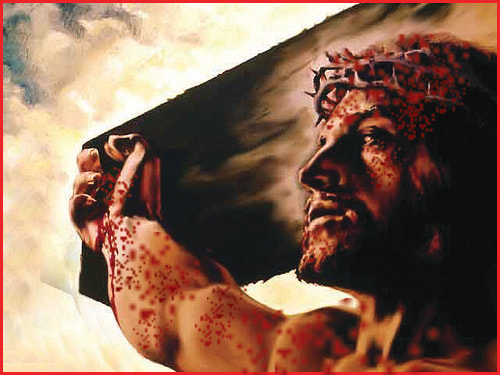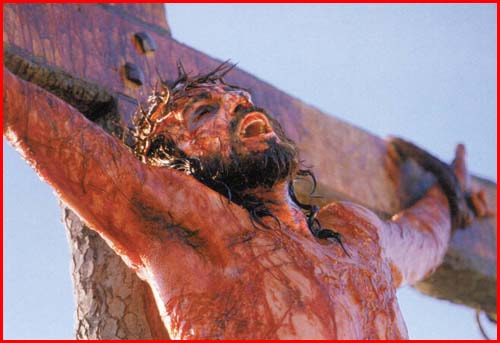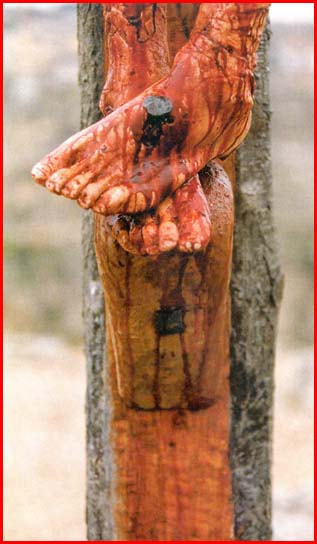| Devotion to Our Lady |
|
- Homepage
-
Daily Thoughts
- 2023 October Daily Thoughts
- Daily Thoughts Lent 2020
- Daily Thoughts for Advent 2019
- Daily Thoughts for October 2019
- Daily Thoughts for September 2019
- Daily Thoughts for August 2019
- Daily Thoughts for July
- Daily Thoughts for June
- Daily Thoughts for Easter 2019
- Daily Thoughts for Lent 2019
- Daily Thoughts for Christmas
- Daily Thoughts Easter 2022
- Sacred Heart
- Holy Ghost
-
Spiritual Life
- Holy Mass Explained
- First Friday Devotions
- First Saturday Devotions
- The Mercy of God
- Vocations
- The Path Everyone Must Walk >
- Gift of Failure
- Halloween or Hell-O-Ween?
- Ignatian Spiritual Exercises >
- Meditation is Soul-Saving
- Spiritual Communion
- Miraculous Medal
- Enrollment in Miraculous Medal
- St. Benedict Medal
- Holy Water
- Advice on Prayer
- Your Daily Mary
-
Prayers
- September Devotions
- Seven Sorrows of Our Lady
-
Novenas
>
- NV-Help of Christians
- NV-Nativity of Our Lady
- NV-Seven Sorrows
- NV- Sorrowful Heart
- NV-Pope St Pius X
- NV-La Salette
- NV-St Michael Archangel
- NV-Immaculate Heart
- NV-Assumption
- NV-Novena for Fathers
- NV-Novena for Your Mother
- NV-St Raphael Archangel
- NV-Souls in Purgatory
- NV-All Saints Day
- NV-Christ the King
- NV-Divine Motherhood
- NV-Guardian Angels
- NV-Rosary
- NV-Mirac Med
- NV- Imm Conc
- NV - Guadalupe
- NV - Nativity of Jesus
- NV-Epiphany
- NV-OL Good Success
- NV-Lourdes
- NV-St Patrick
- NV-St Joseph
- NV-Annunciation
- NV-St Louis de Montfort
- NV-OL Good Counsel
- NV-Last Supper
- NV-Passion
- NV-Pentecost
- NV-Ascension
- NV-Sacred Heart
- NV-Sacred Heart & Perpetual Help
- NV-Corpus Christi
- NV-OL of Perpetual Help
- NV-Queenship BVM
- NV-OL of Mount Carmel
- NV-St Mary Magdalen
- NV- Im Hrt
- August Devotions to IHM
- Immaculate Heart of Mary
- Litany of Dependence
- Prayers to St Mary Magdalen
- Prayers in Times of Sickness Disease & Danger
- Holy Souls in Purgatory
- Meditations on the Litany of Our Lady
- Special Feast Days
- Prayers to Mary (Mon-Sun)
- Litanies to Our Lady >
- Various & Special Needs
- Our Lady of the Rosary
- Our Lady of Mt. Carmel
- Our Lady of Perpetual Help
- Our Lady of Guadalupe
- Other titles of Our Lady
-
Rosary
- Downloads
- Consecration
- Easter Season
-
Holy Week
- Last Seven Words of Jesus >
- Characters of Passion >
- The Last Days of Christ
- Before Palm Sunday
- Palm Sunday
- Monday in Holy Week
- Tuesday in Holy Week
- Wednesday in Holy Week
- Holy Thursday (Last Supper)
- Holy Thursday (Agony & Arrest)
- Night Vigil with Christ
- Good Friday (Pilate & Herod)
- Good Friday (Way of Cross & Crucifixion)
- Saturday in Holy Week
-
Lent
- Ideas for Lent
- Daily Lenten Planner
- Daily Lenten Liturgy
- From Cold to Hot
- Lent with Aquinas
- Lent with Dom Gueranger
- Virtues for Lent
- History of Penance
- How Expensive is Sin?
- Confession of Sins
- Letter to Friends of the Cross
- Sermons for Lent
- Stations of the Cross >
- Lenten Prayers
- 7 Penitential Psalms
- Lenten Psalms SUN
- Lenten Psalms MON
- Lenten Psalms TUE
- Lenten Psalms WED
- Lenten Psalms THU
- Lenten Psalms FRI
- Lenten Psalms SAT
- Lenten Laughs
- Septuagesima
-
Christmas
- Epiphany Explained
- Suggestions for Christmas
- Food For Thought
- Christmas with Aquinas
- Christmas with Dom Gueranger
- Christmas Prayers
- Candles & Candlemas
- Christmas Sermons
- Christmas Prayers SUN
- Christmas Prayers MON
- Christmas Prayers TUE
- Christmas Prayers WED
- Christmas Prayers THU
- Christmas Prayers FRI
- Christmas Prayers SAT
- Twelve Days of Christmas >
-
Advent Journey
- Purgatory
- Christ the King
- Legion of Mary
- Scapular
-
Saints
-
Martyrs for the Faith
>
- Your Daily Martyr >
- All 365 Days of Martyrs
- Cristeros
- St Valentine & Valentine's Day
- Martyrs--Thomas Becket
- Martyrs--John the Apostle
- Holy Machabees
- Age of Martyrdom
- Carmelites of Compiegne
- Martyrs--Peter & Paul
- Martyrs--John the Baptist
- Martyrs--Andrew
- Martyrs--James the Great
- Martyrs--North American
- Martyrs--Seven Holy Sleepers
- Martyrs--Afra
- School of Martyrdom
- Martyrs--Christina
- Desert Saints >
- Saints for Sinners >
- Saints of Mary >
- History of All Saints Day
-
Martyrs for the Faith
>
- Precious Blood
- Synod 2023
-
Catechism
- Catechism Lesson 1
- Catechism Lesson 2
- Catechism Lesson 3
- Catechism Lesson 4
- Catechism Lesson 5
- Catechism Lesson 6
- Catechism Lesson 7
- Catechism Lesson 8
- Catechism Lesson 9
- Catechism Lesson 10
- Catechism Lesson 11
- Catechism Lesson 12
- Catechism Lesson 13
- Catechism Lesson 14
- Catechism Lesson 15
- Catechism Lesson 16
- Catechism Lesson 17
- Catechism Lesson 18
- Catechism Lesson 19
- Catechism Lesson 20
- Catechism Lesson 21
- Catechism Lesson 22
- Bible Study
-
Calendar
- Miracles
- Apparitions
- Shrines
- Prophecies
- Angels Homepage
- Hell
-
Church Crisis
- Conspiracy Theories
- Amazon Synod 2019 >
- Liberalism & Modernism
- Modernism--Encyclical Pascendi
- Modernism & Children
- Modernism--Documents
- The Francis Pages
- Church Enemies on Francis
- Francis Quotes
- Amoris Laetitia Critique
- Danger of Ignorance (Pius X)
- Restore all In Christ (Pius X)
- Catholic Action (Pius X)
- Another TITANIC Disaster?
- The "Errors of Russia"
- CRISIS PRAYERS
- Election Novena 2024
- The Anger Room
- War Zone
- Life of Mary
- Spiritual Gym
- Stupidity
- Coronavirus and Catholicism
- History & Facts
- Books
- Catholic Family
- Children
- Daily Quiz
-
Novena Church & Pope
- Day 01 Church-Pope Novena
- Day 02 Church-Pope Novena
- Day 03 Church-Pope Novena
- Day 04 Church-Pope Novena
- Day 05 Church-Pope Novena
- Day 06 Church-Pope Novena
- Day 07 Church-Pope Novena
- Day 08 Church-Pope Novena
- Day 09 Church-Pope Novena
- Day 10 Church-Pope Novena
- Day 11 Church-Pope Novena
- Day 12 Church-Pope Novena
- Day 13 Church-Pope Novena
- Day 14 Church-Pope Novena
- Day 15 Church-Pope Novena
- Day 16 Church-Pope Novena
- Day 17 Church-Pope Novena
- Day 18 Church-Pope Novena
- Day 19 Church-Pope Novena
- Day 20 Church-Pope Novena
- Day 21 Church-Pope Novena
- Day 22 Church-Pope Novena
- Day 23 Church-Pope Novena
- Day 24 Church-Pope Novena
- Day 25 Church-Pope Novena
- Day 26 Church-Pope Novena
- Day 27 Church-Pope Novena
- Day 28 Church-Pope Novena
- Day 29 Church-Pope Novena
- Day 30 Church-Pope Novena
- Day 31 Church-Pope Novena
- Day 32 Church-Pope Novena
- Day 33 Church-Pope Novena
- Day 34 Church-Pope Novena
- Day 35 Church-Pope Novena
- Day 36 Church-Pope Novena
- Day 37 Church-Pope Novena
- Day 38 Church-Pope Novena
- Day 39 Church-Pope Novena
- Day 40 Church-Pope Novena
- Day 41 Church-Pope Novena
- Day 42 Church-Pope Novena
- Day 43 Church-Pope Novena
- Day 44 Church-Pope Novena
- Day 45 Church-Pope Novena
- Day 46 Church-Pope Novena
- Day 47 Church-Pope Novena
- Day 48 Church-Pope Novena
- Day 49 Church-Pope Novena
- Day 50 Church-Pope Novena
- Day 51 Church-Pope Novena
- Day 52 Church-Pope Novena
- Day 53 Church-Pope Novena
- Day 54 Church-Pope Novena
- Penance Novena
- Daily WeAtheR Forecast
| 1st Station | 2nd Station | 3rd Station | 4th Station | 5th Station | 6th Station | 7th Station |
| 8th Station | 9th Station | 10th Station | 11th Station | 12th Station | 13th Station | 14th Station |
| 8th Station | 9th Station | 10th Station | 11th Station | 12th Station | 13th Station | 14th Station |
The Greatest and Most Important Time in the Church's Liturgical Year
CLICK ON ANY LINK BELOW
Also lots of LENTEN & HOLY WEEK DOWNLOADS on the downloads page (click here)
LENTEN PAGES
| ASH WEDNESDAY COUNTDOWN | LENT (MAIN PAGE) | DAILY THOUGHTS | DAILY LENTEN LITURGY | DAILY LENTEN PLANNER |
| LENTEN PRAYERS | THE 7 PENITENTIAL PSALMS | IDEAS FOR PENANCE | LENT WITH AQUINAS | LENT WITH DOM GUERANGER |
| HISTORY OF PENANCE | PENANCES OF THE SAINTS | HOW EXPENSIVE IS SIN? | CONFESSION OF SINS | ARE FEW SOULS SAVED? |
| VIRTUES FOR LENT | FROM COLD TO HOT | LENTEN LAUGHS | | SERMONS FOR LENT | LETTER TO FRIENDS OF THE CROSS |
| STATIONS OF THE CROSS (INDIVIDUALLY) | ALL 14 STATIONS OF THE CROSS | LITANIES FOR PASSIONTIDE |
| THE LAST DAYS OF CHRIST | SPECIAL HOLY WEEK PAGES |
LITURGICAL PRAYERS FOR EACH DAY OF THE WEEK DURING LENT
| Sundays of Lent | Mondays of Lent | Tuesdays of Lent | Wednesdays of Lent | Thursdays of Lent | Fridays of Lent | Saturdays of Lent |
HOLY WEEK PAGES
| Holy Week Main Page | Before Palm Sunday | Palm Sunday | The Last Days of Christ | Holy Thursday Last Supper Novena | Good Friday Passion Novena |
| Monday of Holy Week | Tuesday of Holy Week | Wednesday of Holy Week | Holy Thursday (Last Supper) | Holy Thursday (Agony & Arrest) |
| Night Vigil With Christ | Good Friday (Pilate & Herod) | Good Friday (Way of Cross & Crucifixion) | Holy Saturday |
THE CHIEF CHARACTERS OF THE PASSION
| Characters of the Passion Mainpage | The Sanhedrin | Pharisees | Scribes | Saducees | Jewish Crowd | Roman Rulers |
| Judas | Annas & Caiphas | Pontius Pilate | Herod | Barabbas | Dismas the Good Thief | St. Peter | St. John | Mary Magdalen |
THE FOURTEEN STATIONS OF THE CROSS
| Introduction to the Stations of the Cross | Short Version of the Stations of the Cross (all 14 on one page) | 1st Station | 2nd Station | 3rd Station |
| 4th Station | 5th Station | 6th Station | 7th Station | 8th Station | 9th Station | 10th Station | 11th Station | 12th Station | 13th Station | 14th Station |
THE LAST SEVEN WORDS OF JESUS FROM THE CROSS
| Seven Last Words on the Cross (Introduction) | The 1st Word on the Cross | The 2nd Word on the Cross | The 3rd Word on the Cross |
| The 4th Word on the Cross | The 5th Word on the Cross | The 6th Word on the Cross | The 7th Word on the Cross |
PRAYERS AND DEVOTIONS TO THE SEVEN SORROWS OF OUR LADY
| Seven Sorrows Meditations | Short Prayers & Short Seven Sorrows Rosary | Longer Seven Sorrows Rosary |
| 1st Sorrow of Our Lady | 2nd Sorrow of Our Lady | 3rd Sorrow of Our Lady | 4th Sorrow of Our Lady |
| 5th Sorrow of Our Lady | 6th Sorrow of Our Lady | 7th Sorrow of Our Lady |
| Novena #1 to the Sorrowful Heart of Mary | Novena #2 to the Sorrowful Heart of Mary |
CLICK ON ANY LINK BELOW
Also lots of LENTEN & HOLY WEEK DOWNLOADS on the downloads page (click here)
LENTEN PAGES
| ASH WEDNESDAY COUNTDOWN | LENT (MAIN PAGE) | DAILY THOUGHTS | DAILY LENTEN LITURGY | DAILY LENTEN PLANNER |
| LENTEN PRAYERS | THE 7 PENITENTIAL PSALMS | IDEAS FOR PENANCE | LENT WITH AQUINAS | LENT WITH DOM GUERANGER |
| HISTORY OF PENANCE | PENANCES OF THE SAINTS | HOW EXPENSIVE IS SIN? | CONFESSION OF SINS | ARE FEW SOULS SAVED? |
| VIRTUES FOR LENT | FROM COLD TO HOT | LENTEN LAUGHS | | SERMONS FOR LENT | LETTER TO FRIENDS OF THE CROSS |
| STATIONS OF THE CROSS (INDIVIDUALLY) | ALL 14 STATIONS OF THE CROSS | LITANIES FOR PASSIONTIDE |
| THE LAST DAYS OF CHRIST | SPECIAL HOLY WEEK PAGES |
LITURGICAL PRAYERS FOR EACH DAY OF THE WEEK DURING LENT
| Sundays of Lent | Mondays of Lent | Tuesdays of Lent | Wednesdays of Lent | Thursdays of Lent | Fridays of Lent | Saturdays of Lent |
HOLY WEEK PAGES
| Holy Week Main Page | Before Palm Sunday | Palm Sunday | The Last Days of Christ | Holy Thursday Last Supper Novena | Good Friday Passion Novena |
| Monday of Holy Week | Tuesday of Holy Week | Wednesday of Holy Week | Holy Thursday (Last Supper) | Holy Thursday (Agony & Arrest) |
| Night Vigil With Christ | Good Friday (Pilate & Herod) | Good Friday (Way of Cross & Crucifixion) | Holy Saturday |
THE CHIEF CHARACTERS OF THE PASSION
| Characters of the Passion Mainpage | The Sanhedrin | Pharisees | Scribes | Saducees | Jewish Crowd | Roman Rulers |
| Judas | Annas & Caiphas | Pontius Pilate | Herod | Barabbas | Dismas the Good Thief | St. Peter | St. John | Mary Magdalen |
THE FOURTEEN STATIONS OF THE CROSS
| Introduction to the Stations of the Cross | Short Version of the Stations of the Cross (all 14 on one page) | 1st Station | 2nd Station | 3rd Station |
| 4th Station | 5th Station | 6th Station | 7th Station | 8th Station | 9th Station | 10th Station | 11th Station | 12th Station | 13th Station | 14th Station |
THE LAST SEVEN WORDS OF JESUS FROM THE CROSS
| Seven Last Words on the Cross (Introduction) | The 1st Word on the Cross | The 2nd Word on the Cross | The 3rd Word on the Cross |
| The 4th Word on the Cross | The 5th Word on the Cross | The 6th Word on the Cross | The 7th Word on the Cross |
PRAYERS AND DEVOTIONS TO THE SEVEN SORROWS OF OUR LADY
| Seven Sorrows Meditations | Short Prayers & Short Seven Sorrows Rosary | Longer Seven Sorrows Rosary |
| 1st Sorrow of Our Lady | 2nd Sorrow of Our Lady | 3rd Sorrow of Our Lady | 4th Sorrow of Our Lady |
| 5th Sorrow of Our Lady | 6th Sorrow of Our Lady | 7th Sorrow of Our Lady |
| Novena #1 to the Sorrowful Heart of Mary | Novena #2 to the Sorrowful Heart of Mary |
THE TWELFTH STATION : JESUS DIES ON THE CROSS
“St. Augustine assures us that there is no spiritual exercise more fruitful or more useful than the frequent reflection on the sufferings of Our Lord. St. Albert the Great, who had St. Thomas Aquinas as his student, learned in a revelation that by simply thinking of or meditating on the Passion of Jesus Christ, a Christian gains more merit than if he had fasted on bread and water every Friday for a year, or had beaten himself with the discipline once a week till blood flowed, or had recited the whole Book of Psalms every day” (The Secret of the Rosary, St. Louis Marie de Montfort, “Twenty-Eighth Rose”).
|
The following passage is taken from The Dolorous Passion of Our Lord Jesus Christ by Blessed Anne Catherine Emmerich
When the executioners had finished the crucifixion of Our Lord, they tied ropes to the trunk of the cross, and fastened the ends of these ropes round a long beam which was fixed firmly in the ground at a little distance, and by means of these ropes they raised the cross. Some of their number supported it while others shoved its foot towards the hole prepared for its reception―the heavy cross fell into this hole with a frightful shock―Jesus uttered a faint cry, and His wounds were torn open in the most fearful manner, His blood again burst forth, and His half dislocated bones knocked one against the other. The archers pushed the cross to get it thoroughly into the hole, and caused it to vibrate still more by planting five stakes around to support it. A terrible, but at the same time a touching sight it was to behold the cross raised up in the midst of the vast concourse of persons who were assembled all around; not only insulting soldiers, proud Pharisees, and the brutal Jewish mob were there, but likewise strangers from all parts. The air resounded with acclamations and derisive cries when they beheld it towering on high, and after vibrating for a moment in the air, fall with a heavy crash into the hole cut for it in the rock. But when the solemn sound of the fall of the cross into the hole prepared for it in the rock was heard, a dead silence ensued, every heart was filled with an indefinable feeling of awe―a feeling never before experienced, and for which no one could account, even to himself; all the inmates of Hell shook with terror, and vented their rage by endeavoring to stimulate the enemies of Jesus to still greater fury and brutality; the souls in Limbo were filled with joy and hope, for the sound was to them a harbinger of happiness, the prelude to the appearance of their Deliverer. The eminence on which the cross was planted was about two feet higher than the surrounding parts; the feet of Jesus were sufficiently near the ground for His friends to be able to reach to kiss them, and His face was turned to the north-west. During the time of the crucifixion of Jesus, the two thieves were left lying on the ground at some distance off; their arms were fastened to the crosses on which they were to be executed, and a few soldiers stood near on guard. The thief placed on the left-hand side was much older than the other; a regular miscreant, who had corrupted the younger. They were commonly called Dismas and Gesmas, and as I forget their real names I shall distinguish them by these terms, calling the good one Dismas, and the wicked one Gesmas. Both the one and the other belonged to a band of robbers who infested the frontiers of Egypt; and it was in a cave inhabited by these robbers that the Holy Family took refuge when flying into Egypt, at the time of the massacre of the Innocents. The poor leprous child, who was instantly cleansed by being dipped in the water which had been used for washing the Infant Jesus, was no other than this Dismas, and the charity of his mother, in receiving and granting hospitality to the Holy Family, had been rewarded by the cure of her child; while this outward purification was an emblem of the inward purification, which was afterwards accomplished in the soul of Dismas on Mount Calvary, through that Sacred Blood, which was then shed on the cross for our redemption. Dismas knew nothing at all about Jesus, but as his heart was not hardened, the sight of the extreme patience of Our Lord moved him much. The tremendous concussion caused by the fall of the cross into the hole prepared for it drove the sharp points of the crown of thorns, which was still upon the head of our dear Savior, still deeper into His sacred flesh, and blood ran down again in streams, both from it and from His hands and feet. The archers then placed ladders against the sides of the cross, mounted them and unfastened the ropes with which they had bound Our Lord to the cross, previous to lifting it up, fearing that the shock might tear open the wounds in His hands and feet, and that then the nails would no longer support His body. His blood had become, in a certain degree, stagnated by His horizontal position and the pressure of the cords, but when these wore withdrawn, it resumed its usual course, and caused such agonizing sensations throughout His countless wounds, that He bowed His head, and remained as if dead for more than seven minutes. When the executioners had finished putting up the cross of Jesus, they ordered the thieves to rise without delay, and they loosened their fetters in order to crucify them at once, as the sky was becoming very cloudy and bore every appearance of an approaching storm. After giving them some myrrh and vinegar, they stripped off their ragged clothing, tied ropes round their arms, and by the help of small ladders dragged them up to their places on the cross. The executioners then bound the arms of the thieves to the cross, with cords made of the bark of trees, and fastened their wrists, elbows, knees, and feet in like manner, drawing the cords so tight that their joints cracked, and the blood burst out. They uttered piercing cries, and the good thief exclaimed as they were drawing him up: “This torture is dreadful, but if they had treated us as they treated the poor Galilean, we should have been dead long ago.” The crosses of the two thieves were placed, the one to the right and the other to the left of Jesus; there was sufficient space left for a horseman to ride between them. Nothing can be imagined more distressing than the appearance of the thieves on their crosses; they suffered terribly, and the one on the left-hand side never ceased cursing and swearing. The cords with which they were tied were very tight, and caused great pain; their countenances were livid, and their eyes inflamed and ready to start from the sockets. The height of the crosses of the two thieves was much less than that of Our Lord. As soon as the executioners had crucified the two thieves and divided the garments of Jesus between them, they gathered up their tools, addressed a few more insulting words to Our Lord, and went away. The Pharisees rode up to Jesus, looked at Him scornfully, made use of some opprobrious expressions. Twelve Pharisees, twelve Sadducees, as many Scribes, and a few Ancients, accompanied by those Jews who had been endeavoring to persuade Pilate to change the inscription on the Cross of Jesus, then came up: they were furious, as the Roman governor had given them a direct refusal. They rode round the platform, and drove away the Blessed Virgin, whom St. John led to the holy women. When they passed the Cross of Jesus, they shook their heads disdainfully at Him, exclaiming at the same time: “Vah! thou that destroyest the temple of God, and in three days buildest it up again, save thyself, coming down from the Cross. Let Christ, the King of Israel, come down now from the Cross, that we may see and believe!” The soldiers, likewise, made use of deriding language. The countenance and whole body of Jesus became even more colorless: He appeared to be on the point of fainting, and Gesmas (the wicked thief) exclaimed: “The demon by whom He is possessed is about to leave Him.” A soldier then took a sponge, filled it with vinegar, put it on a reed, and presented it to Jesus, who appeared to drink. “If thou art the King of the Jews,” said the soldier: “save thyself, coming down from the Cross.” These things took place during the time that the first band of soldiers was being relieved by that of Abenadar. Jesus raised His head a little, and said: “Father, forgive them, for they know not what they do!” And Gesmas cried out: “If thou art the Christ, save thyself and us!” Dismas (the good thief) was silent, but he was deeply moved at the prayer of Jesus for His enemies. When Mary heard the voice of her Son, unable to restrain herself, she rushed forward, followed by John, Salome, and Mary of Cleophas, and approached the Cross, which the kind-hearted centurion did not prevent. The prayers of Jesus obtained for the good thief a most powerful grace; he suddenly remembered that it was Jesus and Mary who had cured him of leprosy in his childhood, and he exclaimed in a loud and clear voice: “How can you insult Him when He prays for you? He has been silent, and suffered all your outrages with patience; He is truly a Prophet―He is our King―He is the Son of God!” This unexpected reproof from the lips of a miserable malefactor who was dying on a cross caused a tremendous commotion among the spectators; they gathered up stones, and wished to throw them at him; but the centurion Abenadar would not allow it. The Blessed Virgin was much comforted and strengthened by the prayer of Jesus, and Dismas said to Gesmas, who was still blaspheming Jesus: “Neither dost thou fear God, seeing thou art under the same condemnation. And we indeed justly, for we receive the due reward of our deeds; but this man hath done no evil. Remember thou art now at the point of death, and repent.” He was enlightened and touched: he confessed his sins to Jesus, and said: “Lord, if thou condemnest me it will be with justice!” And Jesus replied: “Thou shalt experience My mercy!” Dismas, filled with the most perfect contrition, began instantly to thank God for the great graces he had received, and to reflect over the manifold sins of his past life. All these events took place between twelve and the half-hour shortly after the crucifixion; but such a surprising change ad taken place in the appearance of nature during that time as to astonish the beholders and fill their minds with awe and terror. A little hail had fallen at about ten o’clock―when Pilate was passing sentence―and after that the weather cleared up, until towards twelve, when the thick red-looking fog began to obscure the sun. Towards the sixth hour, according to the manner of counting of the Jews, the sun was suddenly darkened. The moon reappear behind the Mountain of Olives, looking pale and full, and advancing rapidly towards the sun, which was dim and over-shrouded by a fog. I saw to the east of the sun a large dark body which had the appearance of a mountain, and which soon entirely hid the sun. The centre of this body was dark yellow, and a red circle like a ring of fire was round it. The sky grew darker and the stars appeared to cast a red and lurid light. Both men and beasts were struck with terror; the enemies of Jesus ceased reviling Him, while the Pharisees endeavored to give philosophical reasons for what was taking place, but they failed in their attempt, and were reduced to silence. Many were seized with remorse, struck their breasts, and cried out: “May His blood fall upon His murderers!” Numbers of others, whether near the Cross or at a distance, fell on their knees and entreated forgiveness of Jesus, who turned His eyes compassionately upon them in the midst of His sufferings. However, the darkness continued to increase, and everyone, except for Mary and the most faithful among the friends of Jesus, left the Cross. Dismas then raised his head, and in a tone of humility and hope said to Jesus: “Lord, remember me when Thou shalt come into Thy kingdom.” And Jesus made answer: “Amen, I say to thee, this day thou shalt be with Me in Paradise.” Magdalen, Mary of Cleophas, and John stood near the Cross of Our Lord and looked at him, while the Blessed Virgin, filled with intense feelings of motherly love, entreated her Son to permit her to die with Him; but He, casting a look of ineffable tenderness upon her, turned to John and said: “Woman, behold thy son!” Then He said to John: “Behold thy mother.” John looked at his dying Redeemer, and saluted this beloved mother (whom he henceforth considered as his own) in the most respectful manner. The Blessed Virgin was so overcome by grief at these words of Jesus that she almost fainted, and was carried to a short distance from the Cross by the holy women. Stillness reigned around the Cross. Jesus hung upon it alone; forsaken by all―disciples, followers, friends, His Mother even was removed from His side; not one person of the thousands upon whom He had lavished benefits was near to offer Him the slightest alleviation in His bitter agony―His soul was overspread with an indescribable feeling of bitterness and grief―all within Him was dark, gloomy, and wretched. The darkness which reigned around was but symbolical of that which overspread His interior; He turned, nevertheless, to His Heavenly Father, He prayed for His enemies, He offered the chalice of His sufferings for their redemption, He continued to pray as He had done during the whole of His Passion, and repeated portions of those Psalms the prophecies of which were then receiving their accomplishment in Him. His sufferings were inexpressible; but it was by them that He merited for us the grace necessary to resist those temptations to despair which will assail us at the hour of death―that tremendous hour when we shall feel that we are about to leave all that is dear to us here below. When our minds, weakened by disease, have lost the power of reasoning, and even our hopes of mercy and forgiveness are become, as it were, enveloped in mist and uncertainty―then it is that we must fly to Jesus, unite our feelings of desolation with that indescribable dereliction which He endured upon the Cross, and be certain of obtaining, a glorious victory over our infernal enemies. Jesus then offered to His Eternal Father His poverty, His dereliction, His labors, and, above all, the bitter sufferings which our ingratitude had caused Him to endure in expiation for our sins and weaknesses; no one, therefore, who is united to Jesus in the bosom of His Church must despair at the awful moment preceding His exit from this life, even if he be deprived of all sensible light and comfort; for he must then remember that the Christian is no longer obliged to enter this dark desert alone and unprotected, as Jesus has cast His own interior and exterior dereliction on the Cross into this gulf of desolation, consequently he will not be left to cope alone with death, or be suffered to leave this world in desolation of spirit, deprived of heavenly consolation. All fear of loneliness and despair in death must therefore be cast away; for Jesus, who is our true light, the Way, the Truth, and the Life, has preceded us on that dreary road, has overspread it with blessings, and raised His Cross upon it, one glance at which will calm our every fear. Jesus then (if we may so express ourselves) made His last testament in the presence of His Father, and bequeathed the merits of His Death and Passion to the Church and to sinners. Not one erring soul was forgotten; He thought of each and every one; praying, likewise, even for those heretics who have endeavored to prove that, being God, He did not suffer as a man would have suffered in His place. The cry which He allowed to pass His lips in the height of His agony was intended not only to show the excess of the sufferings He was then enduring, but likewise to encourage all afflicted souls who acknowledge God as their Father to lay their sorrows with filial confidence at His feet. It was towards three o’clock when He cried out in a loud voice: “Eloi, Eloi, lamma sabacthani?” “My God, my God, why hast thou forsaken Me?” These words of Our Lord interrupted the dead silence which had continued so long; the Pharisees turned towards Him, and one of them said: “Behold, He calleth Elias;” and another: “Let us see whether Elias will come to deliver Him.” When Mary heard the voice of her divine Son, she was unable to restrain herself any longer, but rushed forwards, and returned to the foot of the Cross, followed by John, Mary the daughter of Cleophas, Mary Magdalen, and Salome. A troop of about thirty horsemen from Judea and the environs of Joppa, who were on their way to Jerusalem for the festival, passed by just at the time when all was silent round the Cross, both assistants and spectators being transfixed with terror and apprehension. When they beheld Jesus hanging on the Cross, saw the cruelty with which He had been treated, and remarked the extraordinary signs of God’s wrath which overspread the face of nature, they were filled with horror, and exclaimed: “If the Temple of God were not in Jerusalem, the city should be burned to the ground for having taken upon itself so fearful a crime.” These words from the lips of strangers―strangers too who bore the appearance of persons of rank―made a great impression on the bystanders, and loud murmurs and exclamations of grief were heard on all sides; some individuals gathered together in groups, more freely to indulge their sorrow, although a certain portion of the crowd continued to blaspheme and revile all around them. The Pharisees were compelled to assume a more humble tone, for they feared an insurrection among the people, being well aware of the great existing excitement among the inhabitants of Jerusalem. They therefore held a consultation with Abenadar, the centurion, and agreed with him that the gate of the city, which was in the vicinity, should be closed, in order to prevent farther communication, and that they should send to Pilate and Herod for 500 men to guard against the chance of an insurrection, the centurion, in the mean time, doing all in his power to maintain order, and preventing the Pharisees from insulting Jesus, lest it should exasperate the people still more. Shortly after three o’clock the light reappeared in a degree, the moon began to pass away from the disc of the sun, while the sun again shone forth, although its appearance was dim, being surrounded by a species of red mist; by degrees it became more bright, and the stars vanished, but the sky was still gloomy. The enemies of Jesus soon recovered their arrogant spirit when they saw the light returning; and it was then that they exclaimed: “Behold, He calleth Elias.” The light continued to return by degrees, and the livid exhausted countenance of Our Lord again became visible. His body was become much more white from the quantity of blood He had lost; and I heard Him exclaim: “I am pressed as the grape, which is trodden in the winepress. My blood shall be poured out until water cometh, but wine shall here be made no more.” I cannot be sure whether He really pronounced these words, so as to be heard by others, or whether they were only an answer given to my interior prayer. Jesus was almost fainting; His tongue was parched, and He said: “I thirst.” The disciples who were standing round the Cross looked at Him with the deepest expression of sorrow, and He added: “Could you not have given Me a little water?” By these words He gave them to understand that no one would have prevented them from doing so during the darkness. John was filled with remorse, and replied: “We did not think of doing so, O Lord.” Jesus pronounced a few more words, the import of which was: “My friends and my neighbors were also to forget Me, and not give Me to drink, that so what was written concerning Me might be fulfilled.” This omission had afflicted Him very much. The disciples then offered money to the soldiers to obtain permission to give Him a little water: they refused to give it, but dipped a sponge in vinegar and gall, and were about to offer it to Jesus, when the centurion Abenadar, whose heart was touched with compassion, took it from them, squeezed out the gall, poured some fresh vinegar upon it, and fastening it to a reed, put the reed at the end of a lance, and presented it for Jesus to drink. I heard Our Lord say several other things, but I only remember these words: “When my voice shall be silent, the mouths of the dead shall be opened.” Some of the bystanders cried out: “He blasphemeth again.” But Abenadar compelled them to be silent. The hour of Our Lord was―at last come, His death-struggle had commenced; a cold sweat overspread every limb. John stood at the foot of the Cross, and wiped the feet of Jesus with his scapular. Magdalen was crouched to the ground in a perfect frenzy of grief behind the Cross. The Blessed Virgin stood between Jesus and the good thief, supported by Salome and Mary of Cleophas, with her eyes riveted on the countenance of her dying Son. Jesus then said: “It is consummated;” and, raising His head, cried out in a loud voice: “Father, into thy hands I commend my spirit.” These words, which He uttered in a clear and thrilling tone, resounded through Heaven and Earth; and a moment after, He bowed down His head and gave up the ghost. I saw His soul, under the appearance of a bright meteor, penetrate the Earth at the foot of the Cross. John and the holy women fell prostrate on the ground. The centurion Abenadar had kept his eyes steadfastly fixed on the disfigured countenance of Our Lord, and was perfectly overwhelmed by all that had taken place. When Our Lord pronounced His last words, before expiring, in a loud tone, the earth trembled, and the rock of Calvary burst asunder, forming a deep chasm between the Cross of Our Lord and that of Gesmas. The voice of God―that solemn and terrible voice―had re-echoed through the whole universe; it had broken the solemn silence which then pervaded all nature. All was accomplished. The soul of Our Lord had left His body: His last cry had filled every breast with terror. The convulsed earth had paid homage to its Creator: the sword of grief had pierced the hearts of those who loved Him. This moment was the moment of grace for Abenadar, his horse trembled under him; his heart was touched; it was rent like the hard rock; he threw his lance to a distance, struck his breast, and cried out: “Blessed be the Most High God, the God of Abraham, of Isaac, and of Jacob; indeed this Man was the Son of God!” His words convinced many among the soldiers, who followed his example, and were likewise converted. Abenadar became from this moment a new man; he adored the true God, and would no longer serve His enemies. He gave both his horse and his lance to a subaltern of the name of Longinus, who, having addressed a few words to the soldiers, mounted his horse, and took the command upon himself. Abenadar then left Calvary, and went through the Valley of Gihon to the caves in the Valley of Hinnom, where the disciples were hidden, announced the death of Our Lord to them, and then went to the town, in order to see Pilate. No sooner had Abenadar rendered public testimony of his belief in the divinity of Jesus, than a large number of soldiers followed his example, as did also some of the bystanders, and even a few Pharisees. Many struck their breasts, wept, and returned home, while others rent their garments, and cast dust on their heads, and all were filled with horror and fear. John arose; and some of the holy women who were at a short distance came up to the Blessed Virgin, and led her away from the foot of the Cross. When Jesus, the Lord of life and death, gave up His soul into the hands of His Father, and allowed death to take possession of His body, this sacred body trembled and turned lividly white; the countless wounds which were covered with congealed blood appeared like dark marks; His cheeks became more sunken, His nose more pointed, and His eyes, which were obscured with blood, remained but half open. He raised His weary head, which was still crowned with thorns, for a moment, and then dropped it again in agony of pain; while His parched and torn lips, only partially closed, showed His bloody and swollen tongue. At the moment of death His hands, which were at one time contracted round the nails, opened and returned to their natural size, as did also His arms; His body became stiff, and the whole weight was thrown upon the feet, His knees bent, and His feet twisted a little on one side. It was about three o’clock when Jesus expired. The Pharisees were at first much alarmed at the earthquake; but when the first shock was over they recovered themselves, began to throw stones into the chasm, and tried to measure its depth with ropes. Finding, however, that they could not fathom its bottom, they became thoughtful, listened anxiously to the groans of the penitents, who were lamenting and striking their breasts, and then left Calvary. Many among the spectators were really converted, and the greatest part returned to Jerusalem perfectly overcome with fear. Roman soldiers were placed at the gates, and in other principal parts of the city, to prevent the possibility of an insurrection. Cassius remained on Calvary with about fifty soldiers. The friends of Jesus stood round the Cross, contemplated Our Lord, and wept; many among the holy women had returned to their homes, and all were silent and overcome with grief. CONCLUDING PRAYER V. We adore Thee, O Christ, and we praise Thee, R.. Because by Thy holy cross Thou hast redeemed the world. O Jesus, strip me of my old sinful self and renew me and rebuild me according to Thy will and desire. I will not spare myself, however painful this should be for me: stripped of all temporal and material things, stripped of my attachments to the persons, places and things of this world; stripped of my own will and preferences; I wish to die to all these, in order to live for Thee forever. PRAYER O Jesus, Son of David, have mercy on me! Offer me Thy helping hand, and aid me, that I may not fall again into my former sins. From this very moment, I will earnestly strive to reform: nevermore will I sin! Thou, O sole support of the weak, by Thy grace, without which I can do nothing, strengthen me to carry out faithfully this my resolution. Our Father Hail Mary. Glory Be. V. Lord Jesus, crucified, R. Have mercy on us! |
Web Hosting by Just Host

